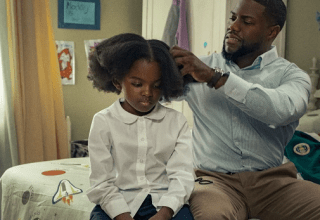
Careers, careers, careers. Most young people don’t know what career paths they want to follow. That’s ok. We are often re-evaluating what the word ‘job’ means and what it entails. Now, we are right back at it again with the opportunities the coronavirus pandemic has presented – free time of sorts to think about careers.
In an exclusive interview with Elikem Nutifafa Kuenyehia, the Chairman/Head of Country Ghana and UK, at ENSAfrica, Africa’s largest law firm, if you are student, graduate or young professional questioning the world of work, you can find the answers you seek or to perhaps questions you even didn’t know you had. His colourful journey to finding his career will provide lessons for any job or role.
- Tell us about yourself
Born at Korle Bu. Attended Ridge Church School, followed by Achimota School. After O-level at Achimota, I started Ghana International School but disliked it so went back to Achimota for sixth form. Was a science student for O-level for the first part of sixth form (studying Biology, Physics and Chemistry), I just about managed a distinction at O-level. But A-level science was an entirely different ball game. I quickly realised that if I continued with science, I was destined for 4 F’s. So halfway through sixth form, to the disappointment of my parents, disapproval of my teachers and disbelief of my classmates, I switched from science to arts (Government, Economics, Literature in English, and the compulsory General Paper). One of the best decisions of my entire life. Instead of 4 F’s. I ended up with 4 A’s.
With a full scholarship, I studied jurisprudence at University of Oxford (Worcester College), after which I took the professional law course at University of Law (then College of Law) in London.
I enjoy reading (autobiographies, personal development mainly), writing (have a column ‘Celebrating Entrepreneurship’ in Graphic Business) and wrote a textbook on Ghanaian entrepreneurship “Kuenyehia On Entrepreneurship’. Currently writing my next book ‘Champagne Ambition, Beer Budget; Insights from bootstrapping and scaling an awesome African institution’. Also written occasionally for the UK publication African Business.
Public Speaking – highlight of my public speaking experience was giving the University of Ghana College of Humanities Commencement Address in November 2019. I also collect African art and I founded Kuenyehia Trust for Contemporary Art whose flagship programme is Kuenyehia Prize for Contemporary Art (www.kuenyehiaprize.org). I enjoy local and international travel, watching movies and series (I binge-watch (not good!) series like Greenleaf, Pose, Sex Education). Entertaining, running, swimming, boxing, and working out generally are also some of my favourite hobbies.
- Walk us through your early career journey (first 5 years)
Trained as a Solicitor at The City of London office of Travers Smith, a corporate and commercial mid-sized English law firm where I completed rotations in the banking, corporate, real estate and dispute resolution departments to qualify as a Solicitor of the Senior Courts of England & Wales.
I then moved to UK ‘magic circle firm’ Linklaters LLP where I specialised in international banking and finance, acting for clients such as Goldman Sachs, Arsenal Football Club and Barclays Bank. While at Linklaters, I was seconded to work as an in-house lawyer on the trading floor at Barclays Bank’s head office at Canary Wharf in London working with the Global Markets team.
I then left Linklaters to study for an MBA in Entrepreneurship, Finance and Marketing at Northwestern University’s Kellogg School of Management.
- What values/skills would you say you demonstrated in your early career journey that have contributed to your career success?
- Intellectual curiosity
- Interpersonal skills
- Self-awareness resulting from introspection
- Capacity for hard work
- Authenticity
- Did you always know you wanted to do what you are doing now?
NO. I still don’t know what I want to do ‘when I grow up’.
- What were some of the mistakes you made on the career journey?
- Joining the consumer strategy team at Diageo’s North American office, as Associate Brand Manager for Captain Morgan Rum. I made the decision for the wrong reasons – prestige of working for a company like Diageo, the opportunity to live and work in New York City, the sign-on bonus, attractive compensation and perks. But I failed to listen to my instinct that working for one of the world’s largest producer of alcoholic beverages really was not what I wanted to, seeing that I do not drink alcohol.
- Wearing my heart on my sleeve a little too much – so getting into unnecessary confrontation with my superiors.
- Prioritising work to the detriment of all other aspects of my life.
- Being too impatient for additional responsibilities instead of focusing on taking my time to learn and develop.
- Not believing in my ability and being easily intimidated by my colleagues at Travers Smith and Linklaters.
- If you had the opportunity to change one thing in your early career/work experience days what will it be?
I shouldn’t have become a lawyer and gone straight into business. I know that this may seem strange coming from someone who is perhaps best known for being a lawyer and for founding a leading law firm. But my real passion is entrepreneurship. Oxford & Beaumont was more of an entrepreneurial adventure than me pursuing law per se. I recognised a gap in the Ghanaian legal services market which I believed I had the skill sets to pursue and most importantly was one I could pursue with a small amount of capital. So I set up Oxford & Beaumont with a total investment of GH¢5,000. I then bootstrapped and scaled it to the point that I saw another opportunity for a pan-African presence through the merger with ENS.
My real focus/job at Oxford & Beaumont/ENS therefore not as a traditional lawyer (I have never been to court in my entire life for example and I don’t own a wig and gown). My real focus has been in providing the sort of leadership that ensures that as a firm we remain at the top of our game. This involves strategy, market analysis, management, talent Management (recruiting, development, mentoring and coaching), client and stakeholder relationships. I also look after our London office where I focus largely on our relationships with the leading global elite law firms and on profile raising. So my role is not dissimilar to an executive in any leading corporate institution, whether local or global.
- Any advice to someone who is confused about their career planning?
Firstly take an inventory of the things that come naturally to you and your passions/interests. Then make a list of the sort of industries/careers which fit those skills and interests – Use your careers service or a career professional to help you with this. Make a shortlist of the top 5.
Finally set up meetings with as many people as you can to understand what is involved in pursuing your top 5 – speak to both the junior guys and more seasoned ones. Use LinkedIn to reach out to them and leverage all the relationships you, your family, your lecturers have. An internship or project work looking at one or more of those industries might help this process. Ideally you have different internships for each of your summer holidays.
Go for something that you want to do not what the career advisor or your parents want you do to. And do not follow the crowd. Listen to your heart. As Steve Jobs famously said “Don’t be trapped by dogma – which is living with the results of other people’s thinking. Don’t let the noise of others’ opinions drown out your own inner voice. And most important, have the courage to follow your heart and intuition”
Equally important is for you not to stress about it. Don’t overthink think it. Your first career/job is very likely not going to be the only one. The days of the linear career paths that your parents or grandparents pursued, sometimes at one company, are numbered. According to the US 2019 Bureau of Labour, the average number of jobs in a lifetime is 12. Seems ridiculously high doesn’t it? I suspect for most of you, it will be lower than 12. But the point is that you are likely to have more than one job in your lifetime. COVID-19 has made this even more likely. Many of you will build ‘gig careers’ or ‘portfolio careers’ where you pursue a bunch of professional endeavours, sometimes simultaneously, over the course of your professional life.
- If you had a minute to coach/advice a tertiary student about work readiness, what would it be?
- Invest almost as much time in your social capital as you do in your academic work. You will soon forget most of the things you learn in your econometrics class. But the relationships you build with your classmates, lecturers, the guest speakers who come to class and your wider community will endure, last you a lifetime and will inevitably become a source of your professional and financial success, wellbeing and general satisfaction in life. So throw yourself into life on campus – join the student union, volunteer in the community, sing in the choir, try salsa or ballroom dancing– take as much advantage as you can of what university life has to offer both within the classroom and outside it.
- Don’t be afraid to fail. Just be sure to reflect honestly on any failures to figure out what the lessons are.
- When you start work, treat everybody you meet equally. The secretary or messenger can be almost as important to you getting most out of your professional life as the CEO.
- Find yourself a mentor – someone who has had recent similar experience. For example a junior manager at a company you are considering and manage that mentoring relationship proactively. Don’t go contacting the CEO or some senior executive for mentoring. They don’t have the same recent similar experiences.
- Knowing what you know now as a high-profile professional, what would be your advice to a rising young professional you are mentoring?
- Invest in social capital and expand your social network as widely as possible. Invest in your alumni clubs, various professional clubs etc. and various social groups at work or outside work.
- Be obsessive about quality and excellence consistently and throughout your career.
- Find yourself a sponsor within your organisation. Someone senior enough to give you great insights on your career and hopefully expose you to opportunities for progression.
- Don’t be afraid to fail. Just make sure you learn from any such failure.
- Focus “on the knitting’ – learning about the nuts and bolts of your industry.
- Strike the right balance. After all, life is short and you don’t want to be lying on your death bed looking back only at your achievements at work.
- Create a vision of exactly where you’d like to be and develop this vision to the extent that if you close your eyes, you see a vivid picture of you living that life. I highly recommend developing a vision board which you can see every day to remind yourself of the way ahead. The Bible after all says ‘Without a vision, my people perish’. But a vision is not enough. Have a plan to get there. That’s where mentors and sponsors come in.
Akua Ampah, the interviewer is a writer from Virtual Career Office. The Virtual Career Office exists to support students and young professionals with all career services needs, i.e. CV/Resume editing, interview coaching, career guidance & advising, employability skills workshops, among others keeping them ahead of the game.
Source: myjoyonline.com

















